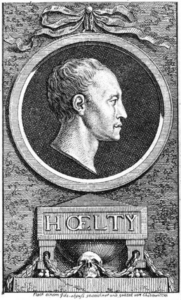Lament
(Poet's title: Klage)
Set by Schubert:
D 436
[May 12, 1816]
Part of The Theresa Grob Album
Dein Silber schien
Durch Eichengrün,
Das Kühlung gab,
Auf mich herab,
O Mond, und lachte Ruh
Mir frohen Knaben zu.
Wenn itzt dein Licht
Durch’s Fenster bricht,
Lacht’s keine Ruh
Mir Jüngling zu,
Sieht’s meine Wange blass,
Mein Auge tränennass.
Bald lieber Freund,
Ach, bald bescheint
Dein Silberschein
Den Leichenstein,
Der meine Asche birgt,
Des Jünglings Asche birgt.
Your silver shone
Through the green of the oak-trees
That were cooling me down;
It came down on me,
Oh moon, and smiled peace
Onto me, a happy boy.
But now when your light
Breaks through the window
It does not smile peace
Onto me, a young man;
It sees my pale cheeks
And my eyes wet with tears.
Soon, dear friend,
Oh, soon you will shine
Your silver light
Onto the gravestone
That covers my ashes,
That covers this young man’s ashes!
All translations into English that appear on this website, unless otherwise stated, are by Malcolm Wren. You are free to use them on condition that you acknowledge Malcolm Wren as the translator and schubertsong.uk as the source. Unless otherwise stated, the comments and essays that appear after the texts and translations are by Malcolm Wren and are © Copyright.
☙
Themes and images in this text:
Cheeks Eyes Fading and losing colour Graves and burials Green Laments, elegies and mourning Light Oak trees Silver Tears and crying Windows Youth
The first version of Hölty´s text was called An den Mond (To the Moon). When Voß published this version (with minor changes) he gave it the title Klage (Lament). He could equally well have called it ‘The three ages of man‘, since the three stanzas present a very distinct scheme based on the past, the present and the future.
In the past (stanza 1) the speaker was a carefree boy (Knabe). He is now (stanza 2) a young man (Jüngling) and as he looks ahead in stanza 3 he realises that he will never grow much older, he will go to his grave as still a young man. Hölty was 24 when he wrote the text and he was to die three years later. Schubert was 19 when he first set it to music (like the author, he was aware that he was no longer a lad and was clearly already a ‘young man’). He must have been aware that there was a chance that he too would soon be dead (in the event he reached the age of 31). Beethoven had already set the same text to music at the same age: 19 (in 1790). He at least managed to survive into what we would call middle and early old-age.
Hölty’s three stanzas are structured around space as well as time. As a lad, the speaker spent his time out of doors, cooling off in the shade of oak trees at night. In the present he is confined to a room and his view of the outer world is by means of a window. All too soon even this glimpse of the outside will be cut off as he will be fully buried; the moonlight will not penetrate to him, it will bounce off his gravestone.
☙
Original Spelling Klage Dein Silber schien Durch Eichengrün, Das Kühlung gab, Auf mich herab, O Mond, und lachte Ruh Mir frohen Knaben zu. Wenn itzt dein Licht Durchs Fenster bricht, Lachts keine Ruh Mir Jüngling zu, Siehts meine Wange blaß, Mein Auge thränennaß. Bald, lieber Freund, Ach, bald bescheint Dein Silberschein Den Leichenstein, Der meine Asche birgt, Des Jünglings Asche birgt!
Confirmed by Peter Rastl with Schubert’s source, Gedichte von L. H. Ch. Hölty. Neu besorgt und vermehrt von Johann Heinrich Voß. Wien, 1815. Bey Chr. Kaulfuß und C. Armbruster. Gedruckt bey Anton Strauß. Meisterwerke deutscher Dichter und Prosaisten. Drittes Bändchen. page 138; with Gedichte von Ludewig Heinrich Christoph Hölty. Besorgt durch seine Freunde Friederich Leopold Grafen zu Stolberg und Johann Heinrich Voß. Carlsruhe, bey Christian Gottlieb Schmieder, 1784, page 100; and with Ludwig Christoph Heinrich Hölty’s Sämtliche Werke kritisch und chronologisch herausgegeben von Wilhelm Michael, Erster Band, Weimar, Gesellschaft der Bibliophilen, 1914, page 128.
Note: Hölty’s poem, initially with the title “An den Mond” (To the moon), was published by Johann Heinrich Voß in a revised version, with the title “Klage” (Lament).
To see an early edition of the text, go to page 138 [216 von 300] here: http://digital.onb.ac.at/OnbViewer/viewer.faces?doc=ABO_%2BZ15769170X


